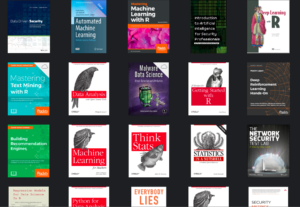
This is both great and worrisome… Simply put, I can’t know it all, and as this is mostly on my spare time (programming is not even in my job description, although I do program to make my team’s life easier), maybe I shouldn’t even try. But as the concept of Kaizen goes (the way I understood it, I am not Japanese and would not mean to disrespect their culture), it is all about improving day after day. And improving, that I can do. It should actually be easy, the more I read, the more I find out how little I know :).
Some Resources
While looking for specific approaches along the past two weeks to improve on my R programming skills, I came across a few resources (also, I am a subscriber of “Data Elixir” – among other mailing lists – which often points to one or two relevant sources…).
And so two such resources stood out, both derived from the first one here:
- https://www.learnr4free.com/advanced.html
- https://csgillespie.github.io/efficientR/programming.html
- https://www.infoworld.com/article/3411819/do-more-with-r-video-tutorials.html
This is, not to mention my personal library, that is starting to be quite consequential. Many things in these books are quite interesting, I just only ever used what I needed when I needed it.
And of course, there is plenty more out there. No way I can comb through it all, and more to the point, that would not be useful in any way. It simply would be “moot”.
With so much great stuff to work on, I had to stop looking for ideas (by the way, I thought some comments by readers on the “Efficient R” book were a bit harsh, maybe it’s because I’m not the most advanced R programmer out there (I mean: far from that), but I really found some great tips in this book, which is also freely available online – see link above). I have to stop reading so much, and start “applying” more (awful, but nevertheless: PUN intended. Among other things, I really make an intentional effort to move away from traditional loops (those I learnt in Pascal, and C, and Java about 15-20 years ago) and towards R vectorised operations with apply and the-likes…).
So new game plan
New strategy: I will work on the stuff I have already found, creating my own examples of some practical needs I have come across at some point or another in the past.
Once again, this will usually be focused towards IT Security goals (note: “Blue Team” mostly) in one way or another. But generally speaking, it’s just the same as other examples out there, only I might not use baseball, real estate or weather datasets.
Because IT Security is the way it is (i.e. simply sharing information or dataset is not too common), I think I will have to create “fake” datasets from scratch at times, but I will throw in some subtleties, complexities and errors I have found in real life, to keep it as realistic as possible. Other times though, I will use sample datasets (log files and such) I have found published out there (referencing the sources, of course).
Hopefully, the examples will be useful to some of those who might read these words.
Conclusions
For now, if at all curious about some cool (I found them cool) R concepts, tricks and techniques, I do recommend you have a look at the resources above (if you have some basics covered already).